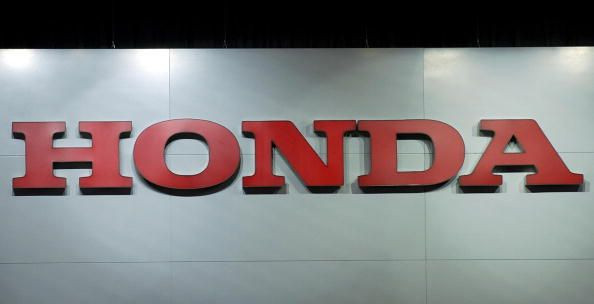Coronavirus Update: Toyota, Honda Prolong Shutdowns Of Chinese Plants

KEY POINTS
- Toyota, Honda and other Japanese automakers have plants in China
- Auto parts companies also operate factories in China.
- Subaru chief admitted it would be impossible to make cars without China
Japanese automakers Toyota Motor (TM) and Honda Motor (HMC) have each extended the shutdowns of their factories in China as the coronavirus continues to add to its death toll across the country.
Toyota plans to reopen its Chinese facilities on Feb. 17 at the earliest. Honda said it will resume production in China during the week of Feb. 17.
Toyota said it will “resume normal operations and deliver vehicles to customers as soon as is deemed safe and appropriate.”
Toyota has 12 auto plants in China, four of which are vehicle assembly sites in the cities of Tianjin, Chengdu, Changchun and Guangzhou.
At these four factories, Toyota manufactured 1.4 million vehicles for the Chinese market in 2019, up 6.6% from the prior year. Sales in China reached 1.62 million, surpassing the figure in Japan for the first time ever.
But the sales and production outlook for 2019 looks grim.
Research group LMC Automotive warned that China’s auto market could contract by at least 10% this year if the epidemic lasts through the third quarter.
Cui Dongshu, secretary general of China Passenger Car Association, predicted that Chinese car sales will plunge by 25% to 30% over the January-to-February period. The outbreak will also reduce down China’s full-year auto sales by up to 5%, Cui said.
But Honda’s Executive Vice President Seiji Kuraishi said he expected no large immediate impact on the company’s operating profit from the China shutdown.
“We are not expecting that much of a negative effect if production can resume as we foresee now,” he said. “Of course, if this situation continues for a long time, that would be quite different.”
Moreover, Honda actually plans to add capacity at its Chinese facilities. At one of its facilities in the city of Guangzhou (a joint venture with GAC Motor Co.), Honda will double annual capacity to 240,000 vehicles. Honda operates three factories in China with GAC. Upon completion, the partnership’s annual production capacity in China will jump to 720,000 from 600,000.
Honda also operates three factories with Dongfeng Motor Group in the city of Wuhan with total annual capacity of 650,000 vehicles. Wuhan is the epicenter of the coronavirus epidemic that has killed more than 500 people.
For now, Honda had been suffering from falling vehicle sales even before the virus erupted.
Honda reported a 31% plunge in its quarterly earnings for the October-December 2019 period.
Profit dropped to 116.4 billion yen ($1.06 billion), down from 168 billion yen ($1.53 billion) in the same period of the prior year. Sales for the quarter fell by 6% to 3.7 trillion yen ($34 billion).
Honda also said that none of the 30 employees who flew back to Japan on chartered planes from Wuhan have the virus.
Japanese automakers as a group are worried about supply chain issues in China due to coronavirus.
“To be honest, it’s impossible to manufacture cars without China,” said Toshiaki Okada, chief financial officer at Subaru Corp. While Subaru has no production bases in China, its principal parts suppliers operate factories there. Many of these parts factories have also been shut down.
Okada said Subaru uses “quite a lot” of parts made in China to assemble cars at its plants in Japan and the U.S.
“Our plants won’t be forced to halt operations [due to the lack of parts] for the foreseeable future, but if [coronavirus] continues to freeze business activities in China, the impact will be unavoidable,” said Okada. “We just don’t know yet when it will happen.”
Arifumi Yoshida, an auto analyst at Citigroup Global Markets Japan, said it will be difficult for Japanese carmakers to procure parts from Chins in the short term.
Yoshida said Honda will likely suffer the worst since it has plants in Wuhan and relies on parts made in China. Yoshida estimated that even a one-month suspension of operations at Honda’s plants in Wuhan and Guangzhou would cut the company’s overall annual net profit by 40 billion yen ($360 million).
Another aspect to worry about will be consumption in the domestic Chinese market.
“People [in China] won’t think about buying cars when their mobility is restricted,” Yoshida added.
In addition, the coronavirus epidemic has now surpassed the severe acute respiratory syndrome, or SARS, epidemic of 2003 in terms of infections. As such, companies have entered uncharted waters.
“We are sorry that we are not yet able to assess the impact of the spread of the virus on our profits and business,” said Masayoshi Shirayanagi, a Toyota operating officer.
© Copyright IBTimes 2024. All rights reserved.





















